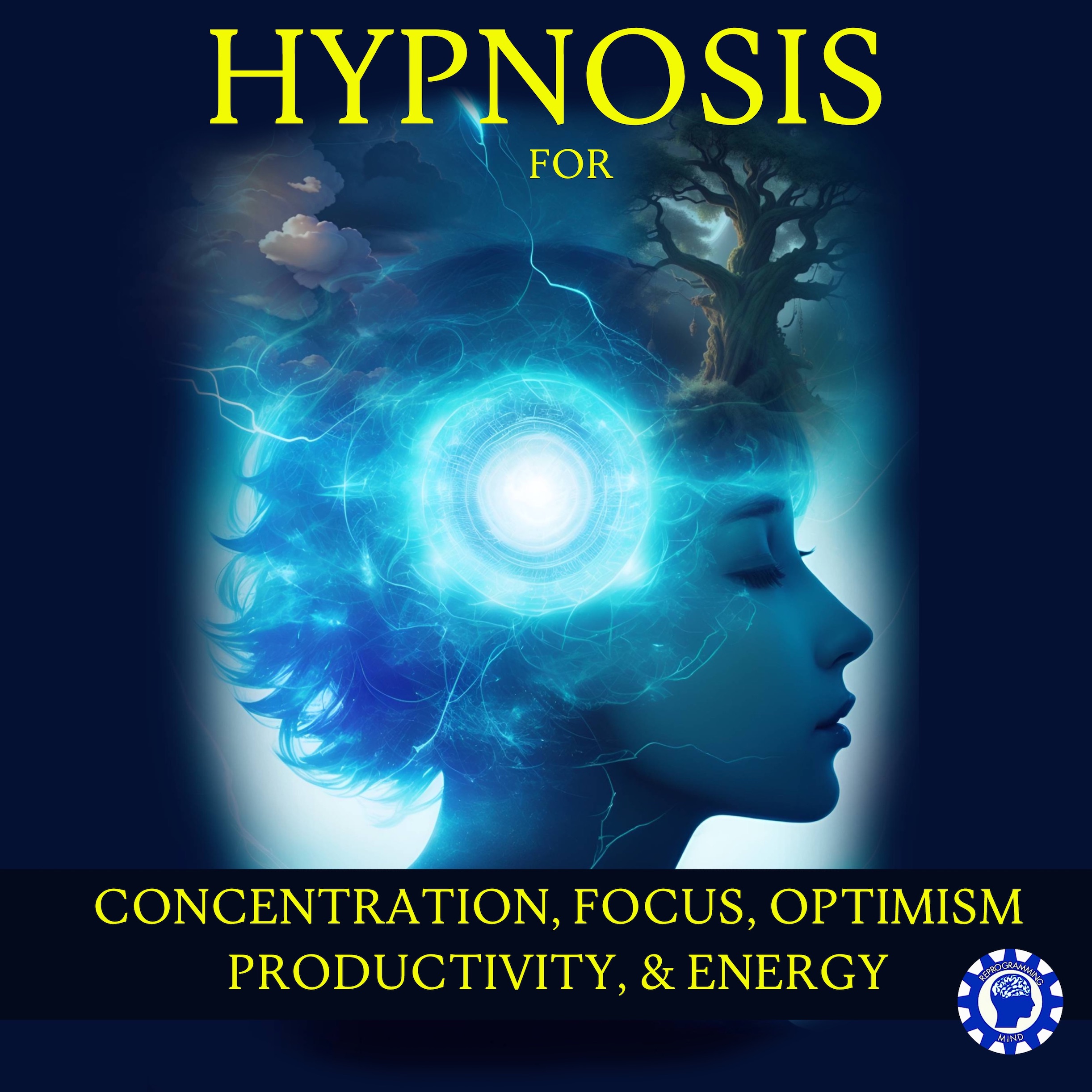In the land of the blind, the one-eyed man is king.
In a world of distractions, concentration is king. We've all experienced those moments, staring at an urgent deadline with a mind that refuses to cooperate. The nudging within to quickly check Insta. The bulging desire to see what's happening on Twitter. The compulsion to sift through Facebook reels, Tik Tok and Youtube shorts all make it easier to be entertained to death than to use our precious time in more fullfilling ways.
The quest to improve focus and concentration is universal, and the benefits of achieving it are immense. In this comprehensive guide, we'll delve into the nuances of concentration, explore the factors influencing focus, and provide you with 15 powerful strategies to elevate your cognitive abilities.
What is Concentration?
Concentration, as articulated by Remez Sasson in "Will Power & Self Discipline," is the ability to direct one's attention according to one's will. It involves focusing the mind on a specific subject, object, or thought while excluding unrelated thoughts, ideas, feelings, and sensations. In a world dominated by constant digital stimuli, the challenge lies in excluding the myriad distractions vying for our attention.
Factors Affecting Concentration
Understanding the factors that hinder concentration is crucial. Here are the five primary culprits:
1. Distraction
The constant influx of information from various sources, especially smartphones, disrupts our ability to concentrate. The sheer volume of data interferes with our decision-making processes, impacting productivity and overall cognitive function.
2. Insufficient Sleep
Lack of adequate sleep leads to lower alertness, slower thought processes, and reduced concentration. Chronic sleep deprivation not only affects immediate focus but also impairs memory, hindering both short- and long-term retention.
3. Insufficient Physical Activity
Physical inactivity results in muscle tension, especially in the neck and shoulders, contributing to discomfort that adversely affects concentration. Engaging in regular exercise has been shown to enhance relaxation and energy levels.
4. Poor Eating Habits
Nutrition plays a pivotal role in mental sharpness and clarity. Diets lacking essential nutrients can lead to symptoms like memory loss, fatigue, and decreased concentration. Maintaining a balanced diet is crucial for optimal cognitive function.
5. Environmental Factors
Environmental conditions, such as noise levels, lighting, and temperature, significantly impact focus. Striking the right balance is essential, as both excessive noise and absolute silence can be detrimental to concentration.
Conditions Related to Concentration
Persistent concentration difficulties may indicate underlying cognitive, medical, psychological, lifestyle, or environmental issues. Seeking professional guidance is recommended for a thorough evaluation and tailored interventions.
Cognitive Factors
Cognitive issues manifest as forgetfulness, misplaced items, and an overactive mind, preventing effective concentration. Intrusive thoughts and concerns hinder the ability to focus.
Psychological Factors
Depression, grief, or anxiety can impair concentration, making it challenging to focus on tasks. Emotional well-being is closely linked to cognitive function.
Medical Factors
Conditions like diabetes, hormonal imbalances, and certain medications can negatively impact concentration. Addressing underlying medical issues is crucial for cognitive well-being.
Environmental and Lifestyle Factors
Poor working conditions, excessive stress, and unhealthy lifestyle choices contribute to concentration difficulties. Creating a conducive work environment and adopting a healthy lifestyle are essential.
15 Ways to Improve Concentration
Now that we understand the intricacies of concentration and its impediments, let's explore 15 effective strategies to enhance focus:
1. Eliminate Distractions
Block specific time slots in your schedule for focused tasks. Minimize external and internal disturbances by silencing notifications, closing social media, and keeping your phone out of sight.
2. Reduce Multitasking
Multitasking may seem productive, but it often leads to lower focus and compromised work quality. When we swtich tasks, we are entering the next task with 'attention residue' from the previous task. Prioritize tasks and tackle them sequentially for optimal concentration.
3. Practice Mindfulness and Meditation
Engage in mindfulness activities to strengthen mental fitness and improve focus. Meditation helps calm the mind, enabling better concentration by redirecting attention to the task at hand. Also helpful is self-hypnosis for concentration and focus.
4. Prioritize Sleep
Establish a healthy sleep routine by avoiding electronic devices before bedtime. Use blue light filters or glasses to mitigate the impact of screen emissions. Quality sleep is integral to cognitive function.
5. Choose to Focus on the Moment
Consciously choose to let go of past events and future anxieties. Train your mental resources to concentrate on the present, fostering detailed attention to current tasks. This will be most difficult in the beginning but practice builds clearer pathways that improves your ability to focus.
6. Take Short Breaks
Combat diminishing focus by taking short breaks during prolonged tasks. Redirecting attention elsewhere rejuvenates mental concentration, ensuring sustained high performance.
7. Connect with Nature
Exposure to nature, even in the form of indoor plants, enhances concentration and productivity. Take short walks in natural surroundings to refresh your mind.
8. Train Your Brain
Engage in brain training activities, such as puzzles and games, to enhance cognitive abilities. These activities improve memory, processing, and problem-solving skills.
9. Incorporate Exercise
Commence your day with simple exercises to release chemicals vital for memory, concentration, and mental sharpness. Physical activity positively impacts neurotransmitter levels, enhancing focus.
10. Listen to Music
Select background music, preferably classical or nature sounds, to aid concentration. Avoid lyrical music that may distract. Music has therapeutic effects on the brain, promoting focused attention.
11. Maintain a Balanced Diet
Fuel your brain with nutrient-rich foods, including fruits, vegetables, and healthy fats. Blueberries, known for their cognitive benefits, can boost concentration and memory.
12. Set Daily Priorities
Outline daily goals and identify a single priority to accomplish. Breaking tasks into manageable parts reduces overwhelm and allows for focused attention on crucial objectives.
13. Create a Dedicated Work Space
Establish a calm and organized workspace, minimizing clutter and optimizing ergonomics. A well-appointed workspace contributes to a conducive environment for concentration.
14. Use a Timer
Implement the Pomodoro Technique or a similar timer-based approach. Set focused work intervals, interspersed with short breaks, to enhance concentration and productivity.
15. Switch Tasks
When stuck on a particular task, switch to another to keep your mind alert. Diversifying tasks prevents monotony and stimulates sustained focus.
Benefits of Improved Concentration and Focus
Enhancing concentration and focus yields a multitude of advantages that span various aspects of personal and professional life. Here are the key benefits:
1. Enhanced Productivity: Improved concentration allows individuals to complete tasks more efficiently, leading to increased productivity. When focus is directed towards a singular task without distractions, the quality of work often improves, contributing to overall effectiveness [6].
2. Reduced Stress: Focused attention helps manage stress levels by preventing the mind from wandering into anxious or overwhelming thoughts. The ability to stay concentrated on the present task fosters a calmer and more composed state of mind, reducing overall stress [7].
3. Improved Memory: Concentration is closely linked to memory retention. When individuals focus intently on information or tasks, they are more likely to remember and recall details accurately. This is particularly beneficial for learning, work-related tasks, and daily activities.
4. Enhanced Learning: Concentration is a cornerstone of effective learning. Improved focus enables individuals to grasp new concepts more efficiently, stay engaged during learning activities, and absorb information more effectively. (8)
5. Increased Confidence: Mastering the ability to concentrate enhances self-confidence. When individuals can consistently maintain focus and accomplish tasks, they develop a sense of competence and belief in their abilities. [3]
6. Better Decision-Making: Concentrated focus allows for more thoughtful and deliberate decision-making. It minimizes impulsivity and ensures that decisions are based on a thorough understanding of the situation or problem at hand [9].
7. Improved Relationships: Being present and fully engaged is vital for effective communication. Improved concentration fosters better listening skills, leading to more meaningful and productive interactions with others.
8. Achievement of Goals: Concentration is instrumental in goal achievement. The ability to stay focused on long-term objectives and break them down into manageable tasks increases the likelihood of successfully reaching milestones [11].
9. Enhanced Creativity: While concentration may seem at odds with creativity, focused attention can enhance creative thinking. By immersing oneself in a task or problem, individuals can discover innovative solutions and ideas.
10. Health Benefits: Improved concentration contributes to overall well-being. It enables individuals to make healthier lifestyle choices, such as maintaining a balanced diet, engaging in regular exercise, and getting sufficient sleep.(12).
In conclusion, honing concentration and focus is a transformative endeavor with far-reaching positive effects on various aspects of life. Whether in the workplace, academic pursuits, or personal relationships, the ability to stay focused not only boosts efficiency but also enriches the overall quality of life.
Improving focus and concentration is a gradual process that requires consistent effort. Similar to professional athletes honing their skills through practice, enhancing cognitive abilities demands dedication. Recognizing the impact of concentration on your life is the first step towards meaningful change. By implementing these strategies, you can not only accomplish tasks more efficiently but also cultivate a fulfilling and purposeful life. It can also allow you to be akin to the one-eyed king if having concentration is a value which others may not.


























0 Comments